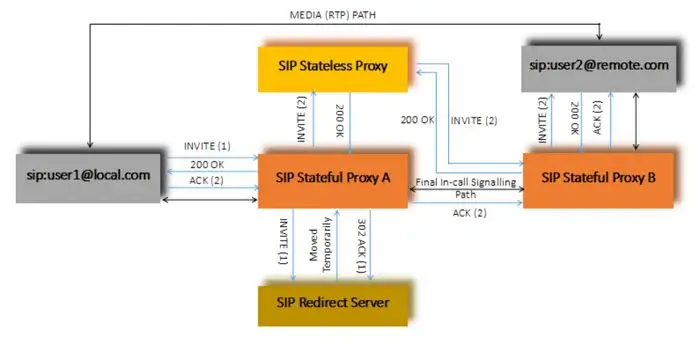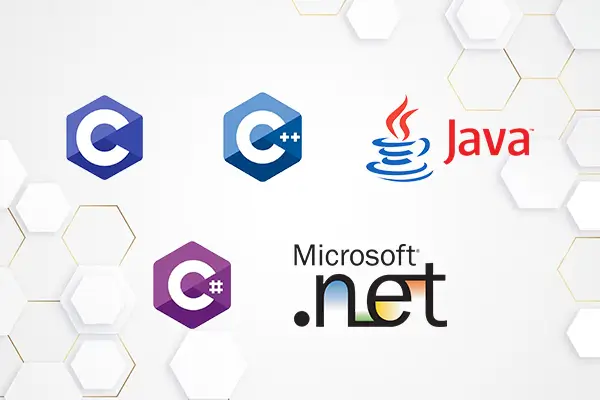SIP Testing
Solutions for SIP Protocol Development and Testing
Development & Testing Services for SIP
OdiTek’s Telecom Testing CoE
We have expertise on complete set of interfaces and protocols that can effectively be used in functional and load testing of SIP Protocol. OdiTek in shortly provides easy-to-use, high-performance and high-capacity regression, conformance Test Cases of SIP testing. SIP is one of the signaling protocols of 3GPP which utilizes the Session Description Protocol (SDP) and also is a part of the IP Multimedia Subsystem (IMS) architecture. OdiTek’s SIP Testing expertise is further enhanced by end-to-end testing capabilities within the 3G/4G/5G core networks.
SIP Overview
The applications of Internet telephony, voice and video calls, private IP telephone systems and instant messaging over Internet Protocol (IP) networks, the Session Initiation Protocol (SIP) is used as a communications protocol for controlling multimedia communication sessions and signaling etc.
SIP also works with several other protocols that specify and carry the session media. Media type and parameter negotiation and media setup is performed with the Session Description Protocol (SDP), which is carried as payload in SIP messages. SIP is basically designed to be independent of the underlying transport layer protocol, and can be used with the User Datagram Protocol (UDP), the Transmission Control Protocol (TCP), and the Stream Control Transmission Protocol (SCTP).
For the transmission of media streams such as voice and video etc., SIP typically employs the Real-time Transport Protocol (RTP) or the Secure Real-time Transport Protocol (SRTP). For secure transmissions of SIP messages over insecure network links, the protocol may be encrypted with Transport Layer Security (TLS). SIP is a text-based protocol, incorporating many elements of the Hypertext Transfer Protocol (HTTP) and the Simple Mail Transfer Protocol (SMTP).It defines the specific format of messages exchanged and the sequence of communications for cooperation of the participants. The call established with SIP may consists of multiple media streams, but no separate streams are required for applications, such as text messaging that exchange data as payload in the SIP message.
In the example below, User1’s UAC uses an Client Transaction for Invite to send the initial INVITE(1) message. If there won’t be any response received after the timer controlled wait period, then the UAC may chose to terminate the transaction or re-transmit the INVITE. If a response is received, User1 is confident now that the INVITE is delivered reliably. User1’s UAC then acknowledges the response. Both sides of the transaction complete on delivery of the ACK(2) and a dialog may have been established in this case.

sets of operational measurements for the SIP Server, SIP Server RTP, SIP Client,SIP Client RTP, SIP Socket and SIP IP layer etc.
At a Glance
OdiTek focuses on testing new technologies & technology generations. It aims to be a preferred partner for enterprises that develop software products based on Telecom Wireless, along with providing QA / Testing services (products & services).
- Focussed on Telecom Wireless, Mobile & Internet technologies.
- Expertise on telecom product development (Wireless), strong on all latest technologies in telecom wireless networks (2G, 3G, IMS, WiMAX, LTE, 5G..). We have telecom teams who are one of the first ones in India who worked on LTE & Air Interface.
- Deployment, testing of telecom network equivalents and solutions
Focus on implementation, support, development, upgrade, rollouts & QA services for Telecoms - OdiTek brings in a very strong competency pool and experienced professional expertise that makes project commitments more reliable and consistent.
- Proven offshore delivery model to provide competitive edge.
Key Service Offerings
- Product Development on C, C++, Java
- Field deployment & testing of Telecom Equipments
- Proprietary scripting for baseline releases
- Applications for all technology generations- 5G (RAN, EPC, Air).
- Telecom Wireless Consulting
- E2E QA solution for 5G, EPC Regression, Load Testing
- Expertise on various simulators like EXFO EAST, IxLoad, dsTest scripts
to test against real/simulated SUT/DUT - Bug tracking; test plans & execution
- Sanity & regression tests of new packages/baselines
Key Automation Specialities
- Protocol testing;
- EPC Nodes and Network elements testing
- Policy and Charging Control Testing;
- VoLTE Testing;
- SIP traffic analysis
- Test and Measurement;
- Testing Policy Management
- Usage Reporting and Monitoring

Telecom Testing

Contract Programming

Offshore Teaming
SIP Application
A SIP connection is alternatively termed for Voice over Internet Protocol (VoIP) services offered by various Internet Telephony Service Providers (ITSPs). It provides routing services of telephone calls from the Private Branch Exchange (PBX) of Client’s telephone system to the Public Switched Telephone Network (PSTN). These services simplify corporate information system infrastructure by sharing Internet access for voice and data and removing the cost for Basic Rate Interface (BRI) or Primary Rate Interface (PRI) telephone circuits.
SIP enabled video surveillance cameras can initiate calls to alert the operator of events such as the objects in moving in a protected and sensitive areas.
SIP trunking is preferred for the service used to simplify a telecom infrastructure by sharing the carrier access circuit for voice, data and Internet traffic while removing the need for Primary Rate Interface (PRI) circuits.
SIP is also used in Audio over IP for broadcasting applications where it provides an interoperable means for Audio interfaces from different manufacturers to make connections with one another.
SIP Conformance Testing
OdiTek’s SIP developers are always in touch with information of conferences organized by SIP Forum to test interoperability of SIP implementations. Basically the TTCN-3 specification language of Test, developed by the task force at ETSI (STF 196) is used for specifying conformance tests for SIP implementations.
SIP Performance Testing
OdiTek is also engaged to test capability of servers and IP networks to handle certain call load: number of concurrent calls and number of calls per second etc. when developing SIP software or deploying a new SIP infrastructure. Some third party SIP performance tester software is used to simulate SIP and RTP traffic to see if the server and IP network are stable under the call load and also to measure performance indicators like answer delay, answer/seizure ratio, RTP jitter and packet loss, round-trip delay time.
Conclusion
At OdiTek, we have excellent knowledge across various Telecom entities, Telecom products etc. We will be happy to assist you and plan your testing activities. Please drop us an email on info@oditeksolutions.com.
LIKE TO KNOW MORE ABOUT OUR TELECOM SERVICES?


